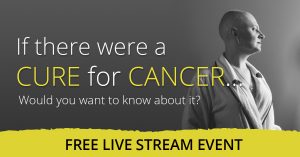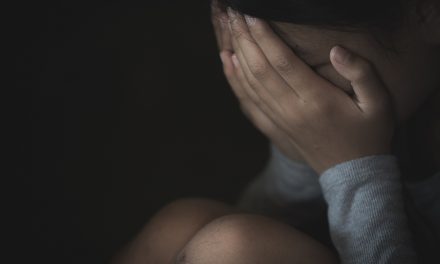With the variety of natural protocols out there for anything from the common cold to treating cancer, a question arises – why do they help one person and not the other? While every human body has unique differences from genetics to life-long experiences and trauma, there are tools that anyone can benefit from no matter the circumstances. In many cases, these tools are what bring the protocol to a stage where it will finally begin working.
Dr. John R. Christopher, the founder of The School of Natural Healing of 1953, discovered just three things that a person can do to jump-start and accelerate healing from just about any disease.
RELATED STORY:
These are universal tips that anyone can put to use right away.
The Story of Two Doctors of Natural Medicine
Also known as Dr. Christopher, this naturopathic doctor and herbalist started his journey into natural healing at a very young age. He was born with advanced rheumatoid arthritis causing him great pain, hardening his arteries, and confining him to a wheelchair. Doctors said he’d never make it to the age of 30.
RELATED STORY:
From childhood, he knew he wanted to be a doctor, not the traditional one to his mother’s surprise, but one that uses natural methods. His mission started to become a reality when he first helped rid his mother of edema, and then successfully defeated his own cancer.
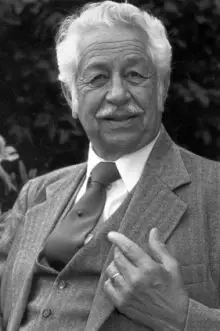
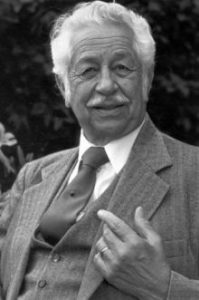
Dr. Christopher inspired many naturopathic doctors. PHOTO: schoolofnaturalhealing.com
The herbal protocols and formulas that Dr. Christopher developed during his life are still used in many naturopathic schools of medicine and inspire other doctors. One of the doctors who followed in his steps is Dr. Richard Schulze, also known as “America’s Herb Doc,” who graduated from The School of Natural Healing, and later studied and taught alongside Dr. Christopher for 17 years.
Using all that he learned, Dr. Schulze went on to create what he calls the Incurables Program. All of the diseases that modern medicine considers to be incurable, such as cancer, heart disease, Alzheimer’s disease, and diabetes, the program aims at healing them naturally by tackling physical, emotional, and even spiritual toxicity in the body, while also using tested and proven herbal formulas, as described in his book “There Are No Incurable Diseases.”
But even this program does not always work for everyone, and when it does not, Dr. Schulze goes back to three tools that Dr. Christopher taught – tools that allow the body to heal.
For People Who Cannot Get Well: Three Tools to Use When You Want to Heal from Any Disease
There are different types of incurable patients, according to Dr. Schulze.
The first category of people who cannot get well is the obvious one – it’s the people who do not follow the program the way they are told to. This can mean skipping out on doses, or forgetting to take the formulas altogether, but also those who wait for a mainstream allopathic doctor to approve their protocol and end up hitting a dead end.
Luckily, that is becoming less of a problem as of late. They are not common, but there are more mainstream doctors who are open to natural healing protocols and are willing to monitor the patient’s progress, as is recommended.
When people do start on a holistic protocol but skip out on parts of the program, these are often the very same vital tools that allow the healing process to take place. When the herbal formulas and the supplements are not working or not fully working, Dr. Schulze recommends that everyone makes sure they do these three things:
Contrast Shower: Hot and Cold Therapy
“The most powerful and efficient way to move the blood around the body is hot and cold hydrotherapy.”
A contrast shower is taken by alternating hot and icy cold water for a couple of minutes. This has become a very common tool for professional athletes and is often used for healing, but it is a tool that virtually anyone can benefit from.
A hot-cold shower improves circulation by stimulating blood flow. This opens up and promotes detoxification of the body. And since many diseases are caused or triggered by toxins, a morning contrast shower may be the most important health habit to have.
Besides helping to heal the body, these showers also give you a boost of energy, a focused mind, and a better mood (cold showers help fight depression, a 2008 study found).
“It is life changing,” Dr. Schulze said in an interview.
[It’s] the most important thing. We can take all nutrition into our body, and all the good juices, but unless that blood gets to the area of our body that’s ill, we’re not going to get better.”
The goal of the contrast shower is to get the water as hot and cold as you can stand without causing harm to your body, not just warm and cool. But each person needs to listen to their body to build up the mental and emotional strength to handle this routine.
If someone is older and has heart issues, it is recommended to start very slow and take about one month to train the body to do the full hot and cold shower. It is also recommended to start with hot and end with cold water and increase each level as high as you can tolerate in about seven cycles each.
Finally, it is best to buy a shower filtration system before taking hot and cold showers (or any showers) to filter out chlorine, fluoride or other toxic chemicals from the water.
Get Rid of Possessions That Are Dragging You Down
“What I’ve seen is that many of us – in order to fully recover from our diseases – need to get rid of car loads of toxic things in our environment that make us ill and keep us ill.”
Mental health is not always on the top of the priorities list when healing a physical ailment – but it should me. Many studies have now shown that feeling positive, optimistic, and as happy as we can be depending on the situation, is a crucial part of getting physically better.
Dr. Schulze points out that one of the biggest ways we self-sabotage our happiness is by refusing to let go of physical objects that remind us of negative life events. This seemingly small habit can drag down our mood on a daily basis.
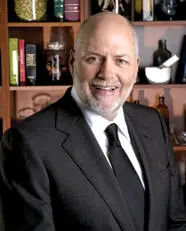
Dr. Richard Schulze
Dr. Schulze calls getting rid of these objects “trashing” and there is a specific amount of clutter that he calculated to get rid of – 30% of everything you own. It may sound crazy, but science has found that clutter does harm both mental and physical health.
Some of this clutter is chemicals in your environment that are physically damaging, but a lot of it is not toxic physically, but instead considered to be emotionally detrimental.
“[It is the] toxic accumulation of material possessions in your house that cause undue stress,” Dr. Schulze said.
Holding on to extreme amounts of physical objects of people who passed away many years ago. Remembering how much you hated college but displaying a graduation diploma to remind you of the negative experiences you had there.
These are just a couple examples of toxic accumulations of bad memories that can have a significant effect on health.
“Why walk in your house every day and the first thing you have to look at is something that reminds (you) of a horrible time or experience? We need to get rid of this stuff,” Dr. Schulze said.
Find a Support System You Can Trust and Rely On
Most people hit at least one challenge during their healing journey: some experience a healing crisis – feeling worse before feeling better, others have days when they feel like they are too tired to get moving whether for physical or emotional reasons. When this happens, it is extremely important to have a support system, people who will pick you up and make sure you are not giving up halfway.
But perhaps even more important than having the right support group is to avoid or limit spending time with people who drain your energy or don’t believe in your ability to heal. Family and friends may love us deeply, but not provide the type of support, patience, and understanding needed to actually heal. They could even make things worse.
Because when you are sick, and putting your trust in holistic healing methods that will make you better over time, the last thing you need in your life are people who aren’t the least bit supportive or open-minded. The same thing goes for doctors and nurses who are only focused on what could go wrong.
Dr. Schulze said that he once got sick with malaria and dengue fever when traveling in India in the 1970s. While running a 105 degrees fever, a nurse came to his room and said:
“You look horrible.”
To which Dr. Schulze sarcastically replied:
“Thank you very much for telling me that.”
The nurse went on and on about everything that was wrong with his body and health at the time, and everything that could still go wrong.
When Dr. Schulze’s friend asked him what he can do to help, he told him to ask the nurse to leave as soon as possible.
Doctors and their medical staff have seen the worst of the worst, so it’s understandable that they might focus on the negative at times. But there is a difference between being prepared for these possibilities and constantly reminding your patients about them.
RELATED STORY:
There is a huge debate about how much the patient has to know, especially if one is fighting a life-threatening condition. Many doctors, especially outside of the U.S., agree that a patient’s job is to focus on getting better, and any negative talk is preventing that.
While it’s not as easy switching doctors, Dr. Schulze recommends separating (even if temporarily) from the negative, fear-based individuals in your life.
After getting rid of or taking a hiatus from people who are not uplifting, Dr. Schulze recommends looking for like-minded people through local natural health groups or even online social media groups. Having access to emotional support at just about any time of day can make all the difference in the world for people who are healing from diseases.
The right people will help you continue your health journey when the going gets tough, and provide support and even insights that you may not have otherwise considered.
Watch one of the interviews with Dr. Schulze in which he explains these three tools:
This article is for informational purposes only and does not constitute medical advice; consult a licensed physician before making any changes to your diet or lifestyle. View our full disclaimer here.




